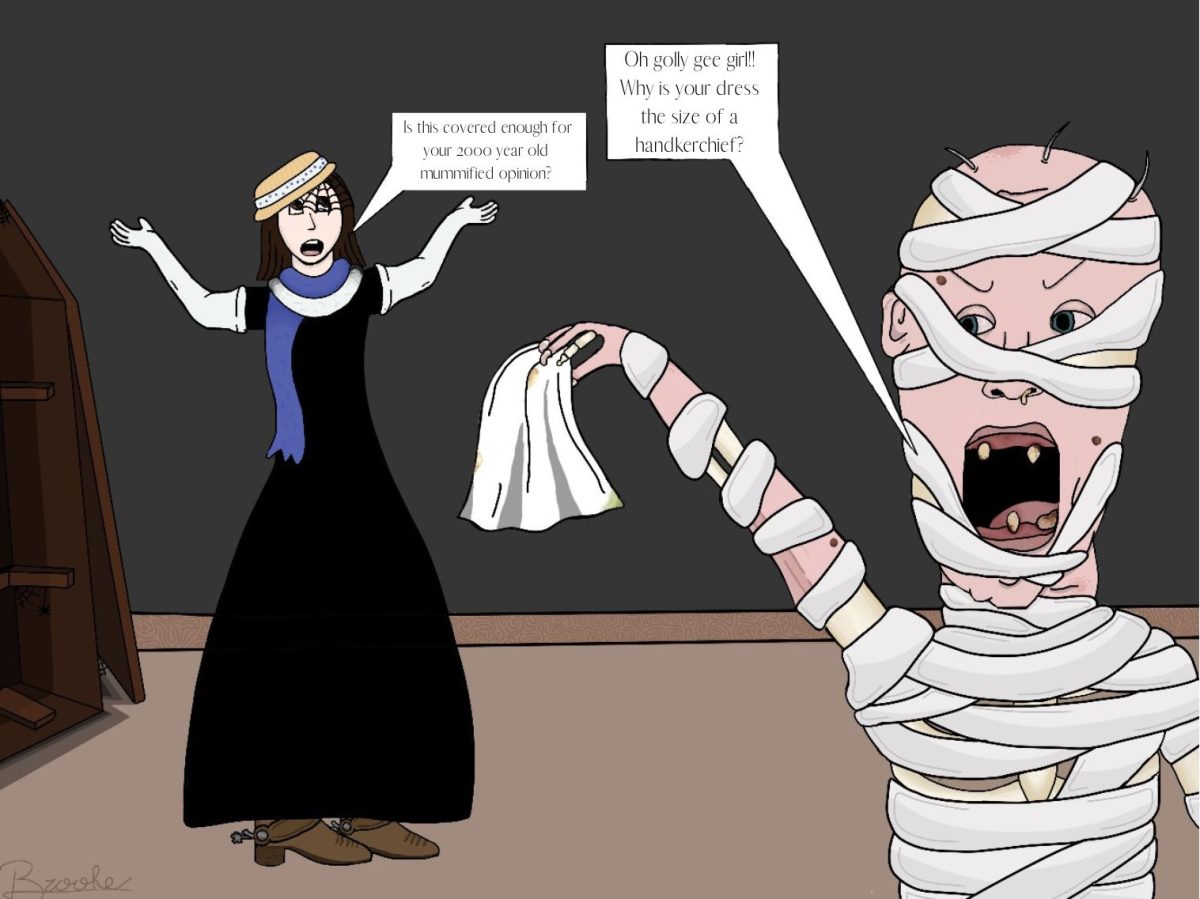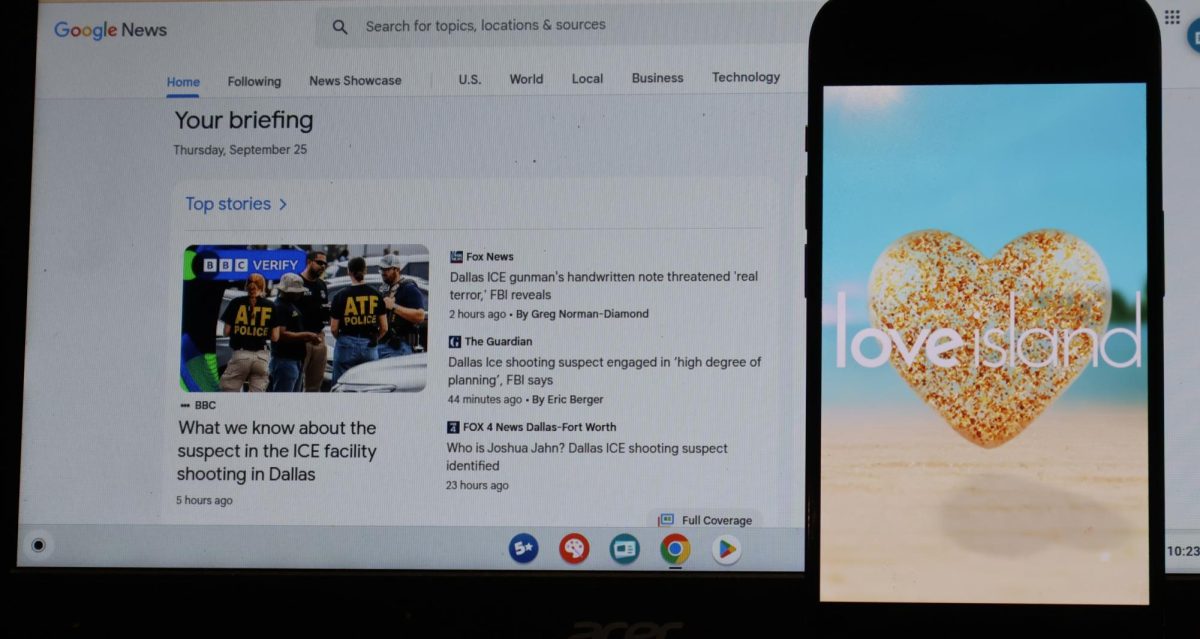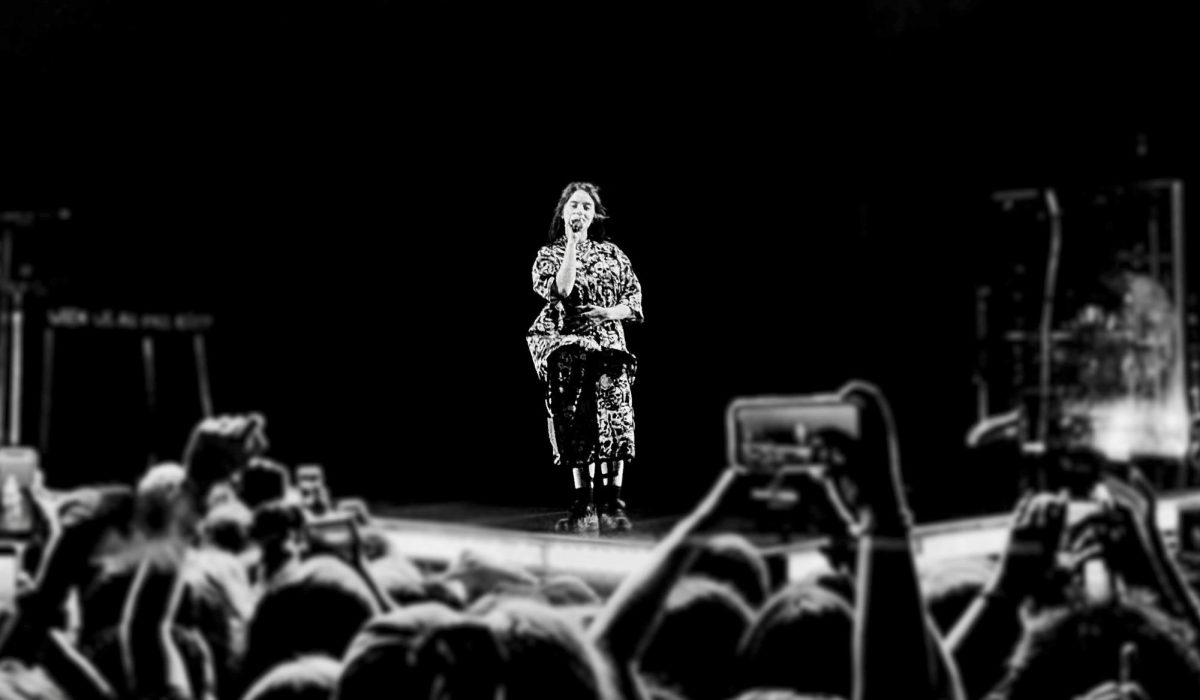Being a sophomore in high school has made me realize how many people are constantly trying to be the center of attention. I’ve also noticed that because of this, people compete to be on top and be a person that they aren’t.
This need for the spotlight is called “Main Character Syndrome,” where a person is stuck in the mindset where they view themselves as the central figure in every situation that they’re in. It blurs the line between confidence and self-absorption. People with Main Character Syndrome see the world as a personal story. “‘Main character energy’ is perhaps the more appropriate term for this set of behaviors, and with this kind of energy, you often present to the world as if a camera is on you at all times,” Psychologist Susan Albers noted in an article examining the syndrome.
Some people may use “Main Character Syndrome” as a coping mechanism to romanticize their lives to cope with stress, trauma, or feeling insignificant. It’s a way that they give meaning to their struggles; to justify that feeling of wanting to be seen, admired, or special because they’ve felt ignored or as if they’re unimportant in real life. Or it could simply just be from genuine confidence. Acting like the main character just might be a front.
On one hand, seeing yourself as a “main character” could be seen as a form of self-empowerment. It encourages people to love and appreciate their lives, set boundaries, take control, and value themselves. But on the other hand, it can slide straight into narcissism or unrealistic expectations. People begin to believe that they are supposed to always be special, always be right, always be the center of attention, and that everyone around them is just a background character. Not only is that isolating, but it’s harmful to a person’s mindset and those who are around them.
TikTok and Instagram are platforms that thrive on aesthetic storytelling. You’re constantly expected to post like your life is a movie. Every coffee, every sunset, every heartbreak—it has to look cinematic. These conditions force people to view themselves performatively and constantly chase a moment that looks meaningful instead of actually being present. But life isn’t a movie. Real growth and connection come from being part of something bigger, being vulnerable, and listening to others, not just being the show’s star. But social media pushes this “highlight reel lifestyle” that makes people feel like they constantly have to perform or prove they are “the main character,” even when they’re just trying to live.
Life is messy, unpredictable, and it constantly feels like life is out of control. The idea of being the “main character” pulls the illusion of control, like everything happening in life is a plot point, and everything that is happening is somehow meaningful or designed for your growth. It can seem comforting, but it can and will detach people from reality and make them avoid responsibility and hard truths.
While focusing on yourself is not always a bad thing, and embracing “main character energy” can even be empowering, it shouldn’t come at the expense of everyone else’s story. Being the “main character” doesn’t mean everyone else is a background player. Everyone is the protagonist of their own life, and the best stories are where multiple characters shine together. When used wisely, this energy can inspire, not overshadow, those around you.



![Working in the Student Success Office, Attendance Secretary Lordis Depiazza inputs a student’s absence excuse note. Students are required to bring an excuse note to the attendance office within three days of any absence. “Reminding students that being in school is important because it reflects towards your grades and being able to do any activities with the school,” Depiazza said. “[It] seems to get the students' attention about wanting to be in school.”](https://southwestshadow.com/wp-content/uploads/2025/10/IMG_8313-1200x800.jpg)

![Squaring up to a practice dummy, sophomore Cypher Andres prepares to throw a punch. Dummies are regularly used to help him prepare certain hits to take his opponents down. “[Boxing dummies help me practice] because it’s basically a model of the body,” Andres said. “It helps with accuracy, such as pressure points behind the ear, and a clean liver shot can end the fight.”](https://southwestshadow.com/wp-content/uploads/2025/10/IMG_5728-e1759850486200-1200x864.jpg)

![Arranging the fabric on the floor for a new project, senior Sapphyre-Ann Leung plans out her attire for the next deadline. With the recent closures, students now had limited resources and less margin for error with the fabric and materials they had in stock while trying to reach strict deadlines. “Joann’s had a lot of high-end fabric for our fashion competitions,” Leung said. “We couldn’t just buy ten yards of fabric from Hobby Lobby or Walmart. Since [Joann Fabrics] is no longer open, we have to buy items online, which is way more expensive.”](https://southwestshadow.com/wp-content/uploads/2025/10/IMG_0038-1200x800.jpg)





